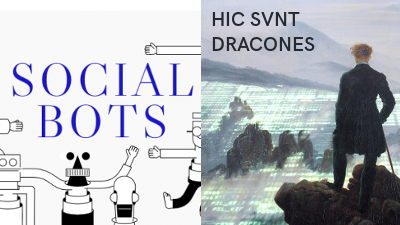
Social Bots & AI.
Research: Social Bots - automated opinion making of the 21st century
Bots, soon to be software robots, have existed since computers have existed. The first example of a bot that was designed with an algorithm to follow a conversation was invented by Alan Turing in the 1950s. The dream of programming a computer algorithm to pass the so-called Turing test has driven research in artificial intelligence for decades. Many things have changed since Weizbaum's program ELIZA, which can simulate different interlocutors via scripts and answers like a psychotherapist. Today, in our social media ecosystem, where hundreds of millions of individuals pursue different interests, including economic and political ones, the incentives to create algorithms that behave "humanely" are increasing. In the last few years, social bots have been populating media platforms such as Twitter, Facebook and Instagram, influencing more or less opinions on political, social or economic issues.
Research: Hic Svnt Dracones
Early world maps or sea charts illustrated places that were not known often with mythical creatures such as sea snakes and sea monsters. Unexplored and uncertain places were marked in this way to indicate that there was something to be discovered there, which might also have been a danger. In the financial world, the risk manager is known in jargon as "T.B.D." (there be dragons) are pointing to risks that are not foreseeable. On the Hunt-Lenox Globe, which is one of the oldest surviving globes and is dated between 1503 and 1510, the formulation HC SVNT DRACONES is found for the areas east of Asia that were undiscovered. The question is what remains undiscovered today in our information society?
Valie Djordjevic, Markus Decker und Pamela Neuwirth
Read more: research.radical-openness.org/2017

